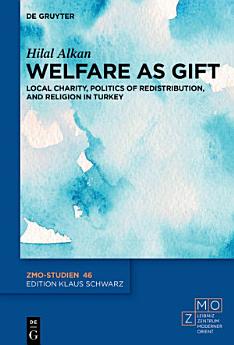Welfare as Gift: Local Charity, Politics of Redistribution, and Religion in Turkey
About this ebook
This book is based on an extensive ethnographic study conducted between 2008-2009 among the charitable organizations of Kayseri, a central Anatolian city with booming industry and a majority conservative political orientation. A stronghold of the Justice and Development Party (AKP), which has been in power in Turkey since 2002, the city has showcased the tenets of the welfare transformation that is to come, even in the early stages of AKP rule. With a focus on the daily practices within the field of beneficence, the book investigates the gift circuits that bring together central state institutions, municipalities, local notables and business people, religious groups, volunteers and employers of charitable organisations, and the urban poor. In these gift circuits, objects, money, services, prayers, recognition, and political and social influence flow in various directions through formal and informal routes. The book illustrates the growing significance of these particular forms of gift-giving in the field of poverty alleviation and welfare provision in Turkey and their role in the drastic political transformation of the country.









